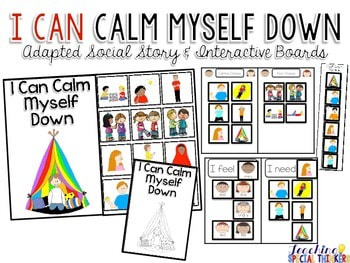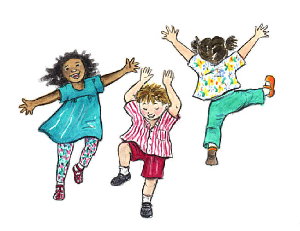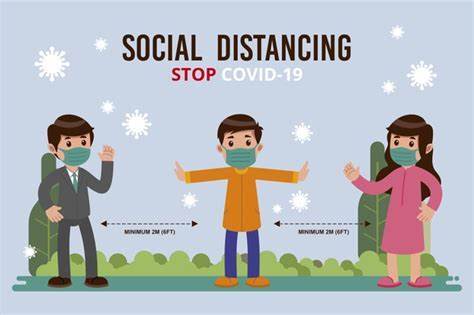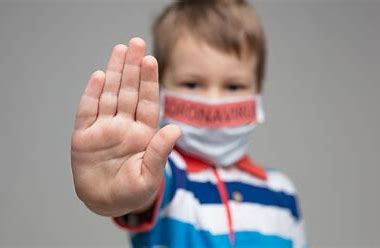PART 1 – AUTISM & HOLIDAYS
How to keep everyone happy during the Holiday Season? Well, maybe not everyone, but at least you and your loved ones with Autism. Here are some helpful ideas which may get you started on that path.
Fletcher (2020) finds some insights to keep the ‘Happy’ in Happy Holidays –
- Prepare with a story. Whether at home or with a host, put together a ‘social story’ to show how the day is expected to progress.
Work together with your family to create a ‘social story’, storyboard, or power cards to show what the holiday will be like. Consider aspects like setting, who else is in the scene, how long the event lasts and what happens during the situation. You want the story to be brief enough to maintain a child’s attention, but you also need enough detail to accurately describe a situation in a way a child with autism will understand. Then, keep them to share next year.
- Harness your inner negotiator. Allow taking a toy to the event. Dress should be casual and comfortable, as well as a well-planned car ride to and from.
Stay flexible. Allow taking favorite toys, and things of comfort, including favorite snacks and drinks. For the car ride, we have a DVD player which hooks to the passenger side headrest for favorite videos on a loop. Relax some boundaries, be flexible, unique situation & that rules aren’t cancelled forever!
- Plan as much as possible. Let everyone know what to expect, new smells, new food, new people, and new things in your home.
< My Thoughts > “…expect new smells…”
Know the sensory ‘triggers’ which will cause meltdowns. The holidays are filled with loud music, blinking and flashing lights, strong spicy smells, and things everywhere they are not supposed to be. Then there are people who will want to hug them, smells that may make them nauseous, noisy chatter, and spaces that are too confining.
- Designate a quiet space. At home or with a host, arrange for a quiet, uncrowded space. Expect that your child may want to explore with their voice and body movement.
Saunders (2020) says that certain kinds of sensory stimulation, such as sights and sounds are known to halp the brain develop. But massive amounts of audio and visual stimulation can do harm on the growing brain. Parents need to ponder how often their children should be exposed to excessive stimulation. But for some this might actually be sculpting their brains for interacting with the world’s fast-paced technology.
Arrange to have an “I need a break!” signal. If being hosted, ask for a prearranged space for much needed sensory relief. Practice taking a deep breath when you feel scared. Say out loud “I don’t know what’s going to happen, but that’s okay.” Focus on what you can do in the present moment. Try to find a ‘safe’ outdoor space to escape to when things get too intense. Vigilance will help to regulate what your child or adolescent can tolerate at that moment in time.
- Use structure to your benefit. Outline clear rules of playing games, taking turns, anticipating that you may not win. Explain that games have a beginning and an ending.
< My Thoughts > “…you may not win.”
Practice turn taking before the big event. Set up a puzzle table to have a place of focus. A good way to provide structure is with a ‘visual’ schedule showing how the day will progress. Before anyone is able to change a behavior, routine, or schedule, you need to know where they are in their basic understanding and build from there. A visual schedule can be homemade on a card, or using an APP for their iPad or other device.
Fletcher reminds us that the hustle and the bustle of the holidays can be challenging for those with sensory processing needs.
REFERENCES
Fletcher, T. (2020). How To Manage Sensory Overload During The Holidays; The Art of Autism; Retrieved online from – https://the-art-of-autism.com/how-to-manage-sensory-overload-during-the-holidays/
Sanders, Laura (2016). Sensory Overload Hurts Young Brains; Science News; Nov. 12-16.
Gordon (2020) guesses that the coronavirus pandemic has altered our lives, disturbed our routines, schedules, and situations, and environments which have been carefully crafted to help us.
Eshraghi, et al. (2020) explain that with the COVID-19 it is more difficult for people with autism to receive needed therapies, practice social distancing, and adjust to daily routines. Also linked to the pandemic difficulties are emotional and behavioral upheavals.
Individuals with autism are identified as part of a group at higher risk for complications from the virus. One answer may be working from home, receiving support via technology and medical services through telehealth. Because people with autism have an affinity for electronics, working via technology may be an affective tool to help us through the pandemic.
Unless of course, the individual with autism has to endure the pace and intensity of flashing, noisy technology, in the emergency department. Specialized care such as oxygen or respiratory support, constant temperature checks, people in ‘personal protective equipment’, and all without the family being there to help or comfort them.
< My Thoughts > “…the pace and intensity…”
Connecting with new routines, strange environments, persons in masks and gowns, can bring on expected undesirable behavioral responses. Even some behaviors you’ve never seen before. Try to keep handy – communication devices- Apps, iPad, tablets, music with earphones, weighted vest or lap pad, sensory (sight, sound, touch, smell & taste) toys, and/or a favorite cold drink. And of course, any meds needed so as not to miss a dosage if you are detained in the office or in travel.
Many times, we have scheduled early appointments, only to find ourselves traveling home in heavy 5pm traffic, in spite of our careful planning; due to doctor overbooking, sending us somewhere for tests, or just playing the ‘waiting’ game. When Sonny sees the ‘Toy Story’ lunchbox, this signals several things – we might be going to the park for lunch; we have plenty of goodies to last us; we are out for the long haul. This mindset helps him stay calm until it’s obvious that we are not having fun! More reasons to have his favorite Vid, App, or familiar ‘whatever’ on a never-ending loop.
Pederson (2020) persists that persons on the autism spectrum are at higher risk for COVID-19 complications for many reasons. First, they tend to have immune disorders and other co-morbidities. Plus, patients may have communication and expression difficulties which prevent them from responding to or comprehending the extremeness of the situation.
If providers are needed, parents and caregivers must keep calm, facilitating communication and offering ‘out-of-the-box’ thinking, such as using TelaDoc to connect with clinicians and doing any Check-In online. Or, asking to wait in the car and having the office text you when the doctor is ready to see you. Also, asking to allow one parent and caregiver to accompany the autistic person throughout the visit process.
< My Thoughts > “…allow one parent and caregiver…”
This is the perfect storm of challenges for parents and caregivers, clinicians, and nearby observers who are convinced they are seeing a ‘very spoiled child’. Maybe it’s time to advertise “Autism Onboard!”
Does your child know when and how to ask for help? Engineer situations where your child finds success when s/he asks for ‘help’ or is asked to ‘wait’. Approach this at a time when your child is in a good state of mind, and you are in an environment which supports you.
- Using simple, concrete language to explain how & why the virus will impact their life.
- Avoiding sarcasm, analogies or metaphors — these can be confusing.
- Providing visuals and stories to support learning
< My Thoughts > “…communicating about corona virus…”
Kids with autism are usually literal thinkers. So, when Mom announces metaphorically that the crowded store parking lot is like a zoo! Literal thinkers start looking around wildly for giraffes & other zoo animals.
Staff Writer, Child Mind Institute – Multi-tasking is inefficient and increases stress. To stop juggling:
- Focus on one thing at a time
- Prioritize urgent tasks
- Delegate work when you can
< My Thoughts > “Multi-tasking…”
Instead of Multi-tasking, make time for yourself. Know that it’s OKAY to take a few minutes just for you. Reach out to people you may be separated from, but whom uplift you. Some parents are looking for ways to deal with their anxiety, depression, or seeking an overall sense of well-being. Or, parents who are trying to find others in a similar situation. There are also ‘Helplines’ which may help you cope and improve your relationship with your loved ones. Thanks to technology, we can learn a multitude to novel things on YouTube.
No one knows what is going to happen. Uncertainty is scary, but worrying will not fix anything. Embrace the unknown by:
- Taking a deep breath when you feel scared
- Saying out loud “I don’t know what’s going to happen, but that’s okay”
- Focusing on what you can do in the present moment
< My Thoughts > “…that’s okay”
“Everything thing is going to be okay! We will get through this!”
Staff Writer, Child Mind Institute – Relax some boundaries. As families increase vigilance around hygiene & social distancing, it’s okay to relax other boundaries.
·
- Maintain structure for children where possible, but be flexible.
- Phones normally off-limits on weeknights? Now that your kids aren’t socializing at school, consider making an exception.
- Explain that this is a unique situation & that rules aren’t cancelled forever!
< My Thoughts > “…unique situation…”
Stay calm, stay informed, stay home, stay in the moment, stay flexible, and stay positive.
REFERENCE
Eshraghi, A., Li, C., et al. (2020). COVID-19: Overcoming the Challenges Faced by Individuals with Autism & Their Families; Lancet Psychiatry: V6, p481-483.
Fletcher, T. (2020). How To Manage Sensory Overload During The Holidays; The Art of Autism; Retrieved online from – https://the-art-of-autism.com/how-to-manage-sensory-overload-during-the-holidays/
Gordon, J. (2020). Coping with Coronavirus: Support for the Autism Community: Retrieved online from –https://iacc.hhs.gov/resources/coronavirus/
Hughes, L. (2020). Holiday Tips for Children With Autism; WebMD, Retrieved online from – https://webmd.com/
Sanders, Laura (2016). Sensory Overload Hurts Young Brains; Science News; Nov. 12-16.
Pedersen, T. (2020). Meeting the Needs of Autistic Individuals During COVID-19; Retrieved online from – psychcentral.com/
Staff Writer, Child Mind Institute (2020). Tips for Parents During COVID 19; Retrieved online from – https://childmind.org/coping-during-covid-19-resource-for-parents/







 RSS Feed
RSS Feed